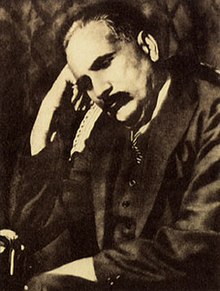Punjabi Shaikh
 A Khattri nobleman, in Kitab-i tasrih al-aqvam by Col. James Skinner in (1778-1841) | |
| Total population | |
|---|---|
| 10 million | |
| Regions with significant populations | |
| • | |
| Languages | |
| • Punjabi • English • Urdu | |
| Religion | |
| • | |
| Related ethnic groups | |
| • Shaikhs in South Asia • Khatris • Kamboj/Kamboh/Kamboja • Muslim Rajputs • Rangrez • Lohar • Arain |
Punjabi Shaikh (Template:Lang-ur) are prominent branch of Shaikh in South Asia.
Name
Sheikh (Arabic and Punjabi: شيخ ), is an Arabic word meaning elder of a tribe, lord, honorable revered old man, or Islamic scholar. In South Asia it is used as an ethnic title generally attributed to Muslim trading families.
The Punjabi Shaikh are a multi-ethnic community descended from native traders who converted to Islam. In South Asia, after the advent of Islam, some higher and lower castes in India), such as Brahmins, Baniyas and Khatris, converted to Islam in the Punjab region and adopted this title. They are known as Punjabi Shaikh (Punjabi) پنجابی شيخ. Punjabi Shaikhs are mostly urban and non agriculturist but a few families also cultivate their own land in the western districts. Their main professions are business and public service. In Punjab, they stereotypically have a reputation for business acumen. Many Rajput clans had converted to Islam, also known as Muslim Rajputs, during the early 12th century and were also given the honorary title of Sheikh (elder of the tribe) by Pirs. Sheikh Rajputs were the earliest in Rajputs to embrace Islam. Another example Khawaja Shaikh, with their sub-division the Chiniotis and the Qanungoh Shaikh are two such communities.
Before the independence of Pakistan in 1947, Khatris were living in all the districts of Punjab. Most of them were concentrated in the western districts. People from all classes; Khatris, Rajputs, Jats, Gujjars, Gakhars, etc.; had converted to Islam. The Siddiqui Shaikhs and Quraishi Shaikhs, Abbasis are communities that are the descended from these converted classes. They are found in Punjab as Punjabi speaking Shaikhs and also found in Sindh as Sindhi speaking Shaikhs. The Siddiqui Shaikhs are also living in northern India and also in Rajasthan, East Punjab, Uttar Pradesh and Haryana as well as in Bihar, West Bengal, Maharashtra and Telangana.
The Saraswat Brahmin, including Mohyals, adopted Sheikh as their title upon high caste conversions to Islam. The Kayastha also adopted Islam as Muslim Kayasths they became part of Shaikh community.
Shaikh
Members of the Shaikh community are those who after converting to Islam from different Hindu Upper castes formed Muslim Khatris, Sunni Khoja, Khawaja (Template:Lang-ar) and community belong many prominent Muslim trading families of South Asia such as Arora, Chawla, Sehgal, Paracha, Chattaa, Bathla adopted the title of Shaikh.
Qanungoh Shaikh
Qanungoh Shaikhs (Template:Lang-fa) belonged to all the districts of the Punjab. They have different lineages and represent families who were holding hereditary office of Qanungoh (Law readers) during the Muslim period.
This designation was used in the Punjab and other provinces of India and Pakistan for hereditary registrar of landed property in a subdivision of a district.
Siddiqui and farooqui Shaikhs
The Siddiqui and farooqui are also clans of Shaikh found in the Punjab. The Siddiqui and Farooqui mostly are Muslim Kayasths who converted to Islam from the Hindu Kayastha caste. The These clans are also found in northern Indian states of Uttar Pradesh, Uttarakhand, Bihar, Chhattisgarh, West Bengal, Pataudi and Haryana. They are usually Urdu speaking community while some can be found to be Punjabi speaking.
Kashmiri Shaikh

The Kashmiri Shaikh are another community living in different districts of the Kashmir and Punjab. They emigrated from Kashmir during the 19th and 20th centuries. Allama Shaikh Muhammad Iqbal belonged to this group. Muhammad Iqbal grandfather Shaikh Rafiq migrated to Sialkot in the early 19th century.
- Allama Ehsan Elahi Zaheer, Islamic scholar
- Khwaja Muhammad Sharif, Chief Justice of Lahore High Court Punjab (2009)
See also
- Ismaili
- Shaikhs in South Asia
- Kashmiri Shaikh
- Khawaja
- Qanungoh Shaikh
- Punjabi Saudagaran-e-Delhi
- Siddiqui
- Sindhi Shaikh
- Phaphra Sheikh
- Chiniotis
- Mian (surname)
- Khawaja
- Khatri
- Bathla Sheikh
- Chattaa Sheikh
References
- Denzil Ibbetson, Edward MacLagan, H. A. Rose, " A Glossary of The Tribes & Casts of The Punjab & North West Frontier Province", 1911, pp 502 Vol II
- Wendy Doniger, tr. "The Law of Manu", (Penguin Books, 1991 ) Verses 43-44, Chapter 10.
- A.L. Basham " The Wonder That Was India", ( Sidgwick & Jackson, 1967)
- D. Ibbetson, E.MacLagan, H.A. Rose, pp 58, Vol I
- Abu Fazal, "Ain-i-Akbari", translated by H.Blocmann & H.S. Jarrett, (Calcutta, 1873–94) 3 Vols., a gazetteer of the Mughal Empire compiled in 1590 AD.
- D. Ibbetson, E.MacLagan, H.A. Rose, pp 513–514 Vol II
